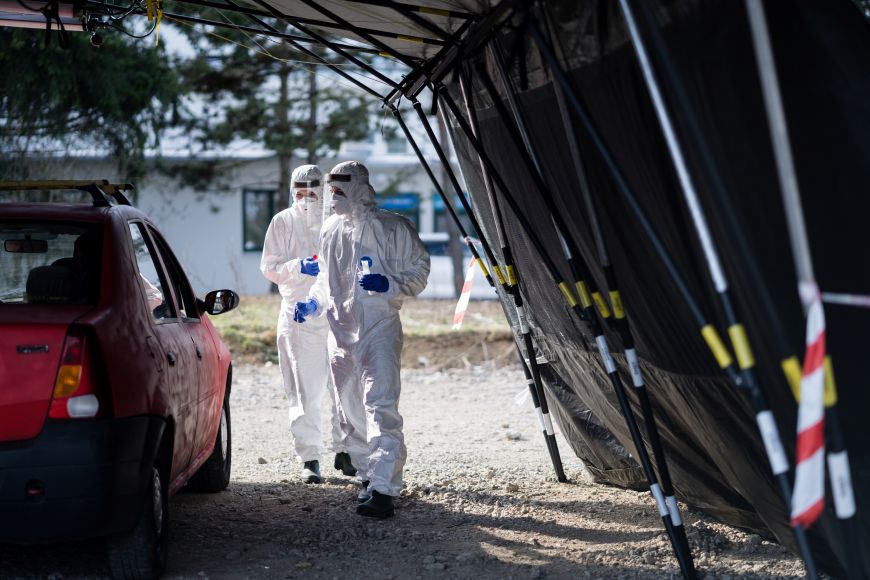After a state of emergency was declared in Czechia, the 25-year-old medical student signed up as a volunteer at the University Hospital Bohunice, where he helped in the hospital’s testing and screening tents. Now, he has successfully passed all his exams for the semester.
In addition to studying at home and attending classes online, from March to May he worked three six-hour shifts a week at the hospital, where he helped process the surge of patients during the coronavirus crisis. “Paradoxically, for me the spring semester was even more hectic than finals period when I had only one job to do: study for my exams. But I am very glad that I could help when it was needed the most. It was also a great experience for me,” he adds.
He spent his first week as a volunteer working at a drive-in testing station. The station was busiest in March, when COVID-19 cases surged in Czechia and more than 100 cars a day came for testing.
“Working at the testing station was difficult. We were on our feet for more than eight hours a day, in the freezing cold and in uncomfortable coveralls. I had a simple job: I handed the main doctor the swabs used to collect specimens from patients’ mucous membranes. Then I put the specimens in tubes, labelled the tubes with the patients’ names, and placed them in a sterile case. Over and over again,” says Mike about his volunteer work.

Even though dozens of people wanted to volunteer at the testing stations, Mike says that after a while the work became monotonous and boring. For him, it was also difficult because as a foreigner he struggled with writing Czech surnames on specimen labels. Therefore, he was glad that after a week at the testing station he got the opportunity to work in the triage tents set up in front of the hospital. Anyone seeking acute care at University Hospital Bohunice had to be screened.
The young medical student checked why people were going to the hospital, whether they had a fever or other symptoms of COVID-19, and then verified with hospital staff whether the patients would be permitted to enter the building. “We had to reduce the number of people entering the hospital to the bare minimum, so there were no visitors, no escorts, no fathers at births. But still, 150 people a day passed through the triage tent who needed acute care, dialysis, chemotherapy, or to go to the pharmacy.”
Mike enjoyed this job even though it was hard for him to communicate with the patients in Czech. However, because he speaks fluent Czech, hardly anyone noticed he was a foreigner. Although for Mike it was difficult to combine his shifts spent working in the hospital tents with studying, he is glad that he could contribute and relieve some of the stress on the overwhelmed medical system when it was needed the most and that he could help the hospital weather the crisis.
“Czechia did a fantastic job handling the situation. I was amazed to see how everyone worked together and understood how important it was to stay home and wear facemasks. I watched with amazement how people offered to babysit for healthcare workers and how they sewed facemasks for others for free and offered them to hospitals and nursing homes. People even sent those of us working in the tents lunches, snacks, and drinks as a way to show their gratitude. I wasn’t expecting such displays of solidarity and community spirit. I am glad I could be a part of it.”
According to Mike, the MU Faculty of Medicine did a wonderful job dealing with the situation, including the transition to online teaching. Even though during the spring semester Mike was worried that due to the coronavirus crisis he would still be taking final exams in September, he managed to pass the last of his seven exams in mid-July. But for him the brightest spot of the spring semester was the opportunity he had to gain valuable professional experience: he took part in combatting a pandemic.
